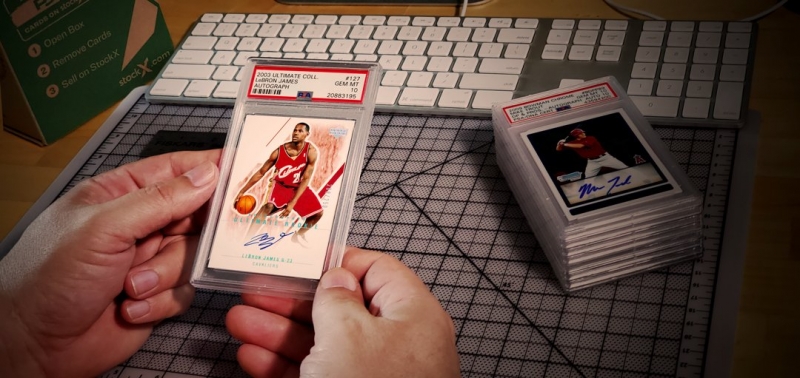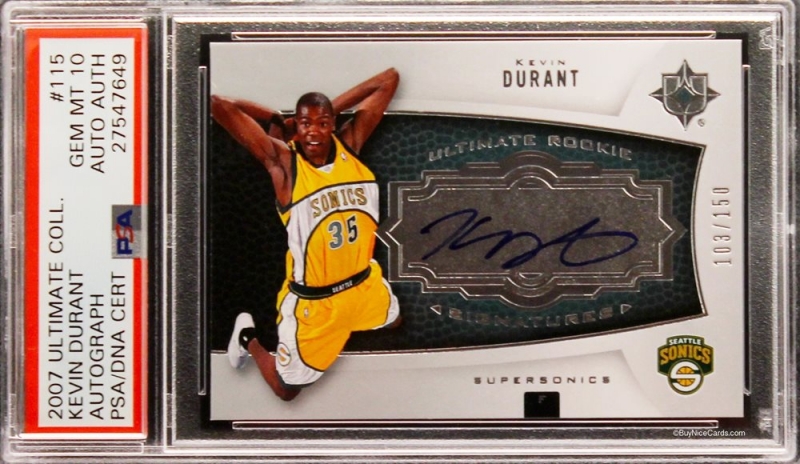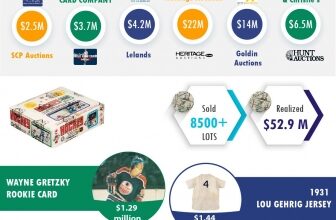More People, More Tech, More Space: Nat Turner Outlines Plans for PSA

Spending time at his parents’ house in North Carolina last year as COVID-19 put the clamps on normalcy, Nat Turner was pondering his next move. The co-founder and CEO of Flatiron Health kept coming back to the hobby that occupied his newly expanded down time.
“I was kind of thinking about what’s next and thought ‘how cool would it be to do something with cards?’”
A few months later, he had put together a group of investors and become the executive chairman of one of the largest collectible companies in the world.
“I started playing around with a bunch of different ideas and frankly, all of them led back to Collectors Universe,” he told SC Daily this week. “I wanted to use computers for detecting trimmed cards. I wanted to allow collectors to be able to see their collections on their phones. It kind of all came back to PSA and extending that vision to other collectibles.”
Collectors Universe, parent company of PSA, wasn’t cheap. The exploding market for sports cards had helped push its stock price from less than $20 to over $90 in a period of several months. In the meantime, Turner had been securing commitments from an increasing number of investors, including D1 Capital Partners, Cohen Private Ventures, fellow collector and Arizona Diamondbacks owner Ken Kendrick and several current and former athletes.
They reached out to the board of directors at Collectors Universe late last year, but shareholders balked at the $700 million offer, believing the company was worth more. A few weeks later, a new “best and final” offer of $853 million was accepted. The deal closed on Turner’s 35th birthday.
“It definitely got uncomfortable for us at the end. We kind of stretched to get there.”

Nat Turner
Reaction to the news that CU would become a private company was mixed but Turner’s involvement was seen as a positive by most collectors, who liked the idea of one of their own not only assuming a key role at the top, but also having the entrepreneurial chops and resources to make the company better. He had focused on investment partners who looked at the project with an eye on the future, not a quarterly earnings report.
“The goal is long-term oriented capital with investors who aren’t going to put a lot of pressure on the company to generate short-term profit,” Turner said. “The goal is long-term investment decisions that benefit the hobby, potentially five-plus years from now. If we need to open a new office somewhere, we don’t have to think about it. We’ll just do it.”
They are walking into a bit of a hornet’s nest, though. On Monday, PSA announced significant price increases for its services, a move that been in discussion long before Turner’s group bought the company. In fact, PSA had already increased rates in October, only to see submission volumes for trading cards continue to increase—21 percent from November to December and 40 percent from January to February. The February volume will surpass that. Turner says the backlog of cards waiting to be examined by PSA graders is “in the single digit millions.”
The status quo clearly wasn’t an option. Still, some collectors were livid.
“The team at PSA has done a really good job trying to scale,” Turner said. “But every time they do, the volume just kept going higher and higher. It’s a wonderful problem but it was creating real issues for customers and the company.”

Turner’s primary mission is to come up with a way to reduce the months-long wait for collectors and dealers to see their orders completed. Long gone are the days when customers would be reimbursed for PSA’s failure to deliver on a promised turnaround time. At most levels now, they’re not promising anything.
Hiking prices, especially for lower valued cards, is one way to slow the incoming orders, but Turner says the overall game plan involves new technology, more employees and more space.
“I think we’re going to explore new offices around the country and even around the world to expand that capacity. A lot of it is going to be investing in scalability, from both robotics and technology software to do various parts of the supply chain. That’s how we dig out of the hole. That’s how other companies do it and we’re no different. We need more space, we need more people and we need more technology and we’re doing all three right now. But I don’t want to make it seem like April 1st we’re going to be back where we want to be. It’s going to be a constant battle. I’m very confident that we’ll get there.”

PSA offices inside Collectors Universe
PSA and other grading companies have also been engaged in a battle to find new workers to process, grade and ship all of those cards. PSA has hired 167 people in the last two and a half months, but convincing potential candidates to move from wherever they’re located is often a stumbling block. “Not everybody who loves cards and wants to work in cards wants to live and work in Santa Ana, California,” Turner said. “I’ve had maybe 300 people reach out to me on Instagram asking me if there are job opportunities and unfortunately if you don’t live in Southern California I have to say ‘let me get back to you’ and that’s really unfortunate.” Putting PSA grading centers in other areas is something he believes will make it easier to hire new people.

Over the last few weeks, Turner says he’s already helped Collectors Universe CEO Joe Orlando and other company executives find other candidates necessary to add more technology to the authentication and grading process. “Engineers, product managers who are very expensive in the short term, but in the long term, worth every penny. Some of the first things that will manifest hopefully will be in technology being used to make the process faster, more accurate and more efficient. It’s my fault if it doesn’t because that’s what I love doing.
“I don’t think we will ever want or need to replace humans. Grading is as much a science as it is an art but we can make things faster and more scalable and potentially more accurate. For example, things like identifying alterations, detecting measurements and centering. Some things computers are good at. Some things computers are actually bad at. We have to do those things right to see a positive outcome. Then it will have been worth it.”
Putting computers and the latest technology to work is also aimed at stopping fraud. Since 2019, collectors in an online forum have been uncovering a large number of cards that appear to have been graded by PSA, then cracked out of their holders, trimmed or recolored in an effort to improve their grade and and submitted again where the alterations somehow went undetected. With the cards authenticated and graded at a higher level, the unscrupulous card doctors who succeeded made big profits. Turner hopes technology can be used to make it easier to turn back fraudsters. “As a collector I’ve been frustrated by how some of those people have been successful. When you buy a card you want to know that it is what it says and that the grade is accurate.”
The investment it took to wrest Collectors Universe from public ownership is a reflection of the growth and interest in sports and other trading cards that began before the COVID pandemic but exploded in the latter half of 2020 and seems poised to continue.
“I was at a card shop on Saturday and there were teenagers there again,” Turner recalled. “Ten, fifteen years ago, you’d have been hard pressed to find someone under the age of 25 at a card shop or show. I think the hobby’s really healthy.”

While some newcomers to sports collecting are buying cards to hold onto, others with deep pockets are buying into industry properties. Some of the names will be known only to those who follow financial news, but current and former athletes and those in the entertainment world are helping push the sometimes nerdy world of collecting into the public eye, potentially expanding the base of active collectors. Brooklyn Nets forward Kevin Durant, Arizona Cardinals wide receiver Larry Fitzgerald and offensive tackle Kelvin Beachum, Houston Texans quarterback Deshaun Watson and former World #1 tennis player Andy Roddick have all bought in. Adding those types of investors to the group that bought CU was no accident.
“I think getting athletes involved is important and potentially very valuable. I personally thought it was important to bring them into the fold and both humanize and normalize the grading and trading card industry as a whole,” Turner explained. He hopes it makes collecting more mainstream, much like it was in the early 1990s.
Beyond adding more technology, Turner is hoping to grow PSA’s collection management tools, including the Set Registry, offer more information to new collectors entering the hobby for the first time or re-engaging after many years away, and expand CU’s reach into new categories of collectibles.
It would have been much easier to buy more basketball cards for his impressive collection and watch things unfold from the sidelines, but Turner sees his new stake in the company that’s graded most of them as taking on stewardship for a well-established business that needed some fresh direction.
“Being around cards, not just as a collector but now as an operator and a business builder and being able to create value for collectors is going to be a lot of fun.”





